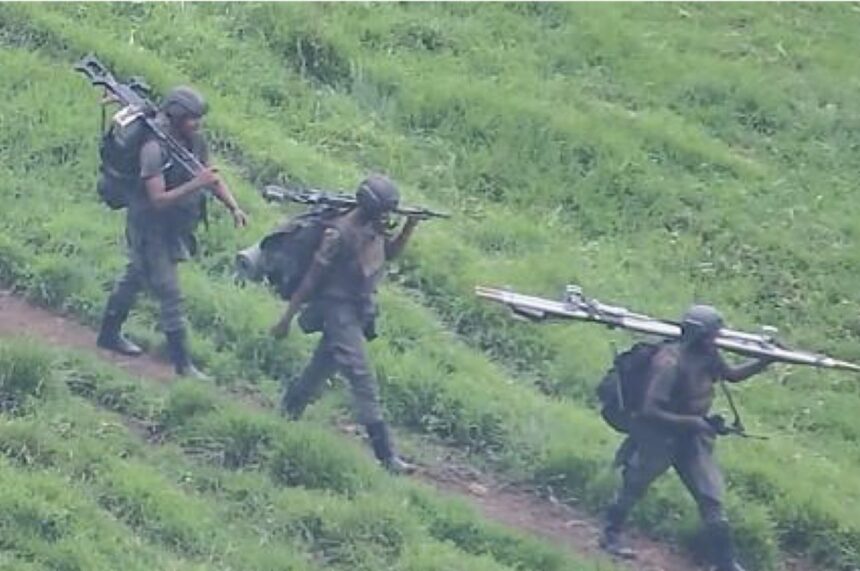After a period of relative calm, fresh fighting erupted early Tuesday morning between the Armed Forces of the Democratic Republic of Congo (FARDC) and the M23/AFC rebels in North Kivu, reigniting tensions in a region already scarred by conflict.
According to multiple local sources, the Congolese army launched a military offensive targeting M23 positions in Mikumbi, a locality near Kibati in Walikale territory. The offensive reportedly pushed rebel forces beyond Kibati, a key strategic location that had recently seen M23 activity.
As the fighting intensifies, administrative authorities confirm that hostilities are now approaching Kashebere, a village that straddles the territorial boundary between Walikale and Masisi. The movement of troops and artillery toward Kashebere signals a potential escalation of the conflict deeper into neighboring territories.
Meanwhile, in the Waloa Yungu groupement, residents are reporting a significant reinforcement of M23/AFC forces in Kasopo. This military buildup has sparked widespread fear and anxiety among civilians, many of whom have already been displaced by previous clashes.
The renewed violence comes amid ongoing negotiations between the Kinshasa government and the M23 rebels in Doha, Qatar. These talks, held behind closed doors, have yielded minimal public information. However, mediators have hailed some outcomes as “gestures of good faith.” One such move was the partial withdrawal of M23 forces from Walikale on April 2, a step the group claimed was aimed at giving the peace process a chance.
In a statement issued on March 22, M23/AFC indicated their repositioning around Kibati was part of a broader commitment to peace. Ironically, it is now this very area that has once again become the frontline of conflict.
As negotiations in Doha hang in the balance and violence resumes on the ground, uncertainty looms over the future of peace in eastern Congo. The situation remains fluid, with fears growing that continued clashes may derail the fragile progress made so far.



